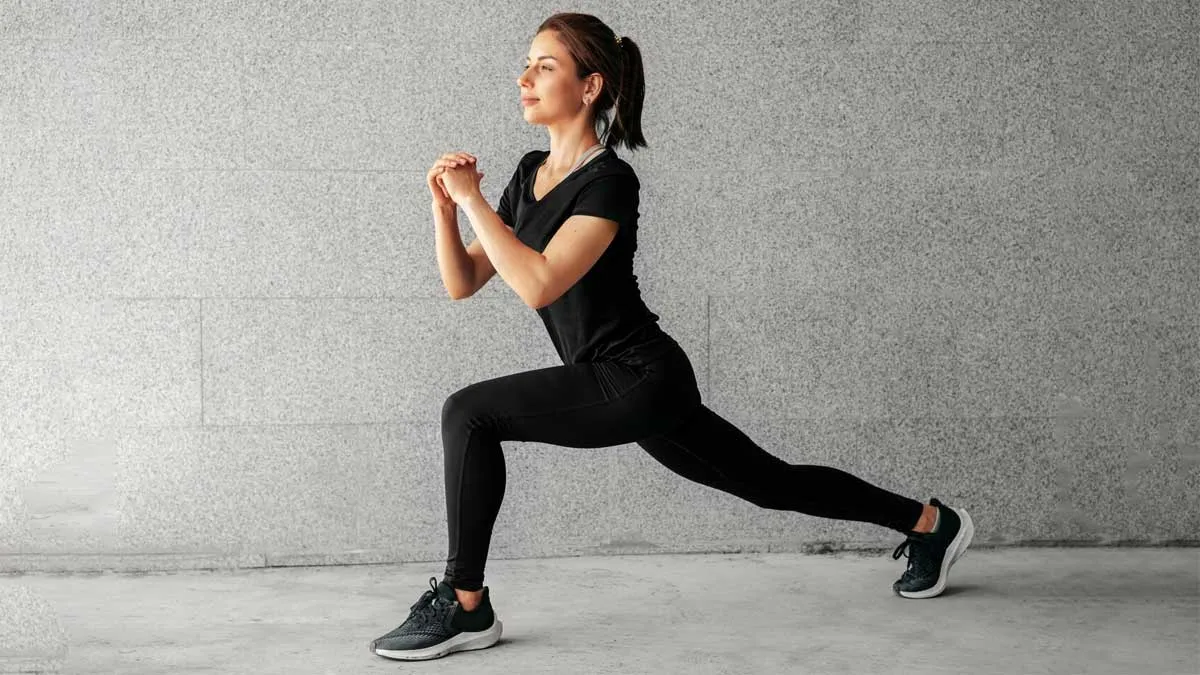
The two-week wait can feel like an emotional rollercoaster ride. It is a phase filled with hope, anxiety, and the overwhelming urge to do everything just right. There is a myth among people that exercise might harm their chances of conception during this delicate window. But the truth is, when done mindfully, gentle to moderate physical activity can support your fertility.
Table of Content:-
We spoke to Dr Sonu Taxak, Director and Senior IVF - Consultant, Yellow Fertility, Gurugram, who explained the benefits of exercises during the two-week wait period.
Studies indicate that physical activity can enhance fertility by improving blood circulation, balancing insulin levels, and supporting hormonal harmony. But the key lies in choosing the right type of exercise and knowing when to rest, when to move, and when to seek guidance.
What Is The Two-Week Wait?

"The two-week wait refers to the period between ovulation or an embryo transfer and a pregnancy test that can accurately confirm results. It’s a phase filled with hope, but also one that can trigger anxiety, overthinking, and a sense of helplessness," explained Dr Taxak. During this period, many women feel unsure about how much to move, rest, or even think. That’s why understanding what truly supports your body during this time is empowering.
Why Light to Moderate Exercise is Beneficial
Contrary to age-old myths, staying active during the two-week wait period can be good for you, as long as it’s done mindfully. "Moderate exercise helps regulate hormones, supports healthy ovulation cycles, and improves blood flow to reproductive organs. It also stimulates the release of endorphins, those feel-good chemicals that help counteract stress, a major fertility disruptor", added Dr Taxak.

1. Manage Stress with Exercise
Emotional well-being is directly linked to reproductive health. Chronic stress can elevate cortisol levels, which may affect ovulation, implantation, and hormone balance. Low-intensity exercises, such as yoga, walking, or light stretching provide a holistic and natural method of reducing stress. They calm your nervous system, stabilise mood swings, and decrease the emotional burden.
Also Read: Expert Shares Importance Of Taking Folic Acid If You Are Trying To Conceive
Say No to Strenuous Workouts
While movement is beneficial, more isn’t always better. Strenuous workouts can increase cortisol levels and put unnecessary stress on your body, potentially interfering with implantation. Swap intense training for slower, nourishing movements that support recovery and balance.
Align Harmony of Mind and Body
When you establish a calming daily routine, one that includes light exercise, hydration, sleep, and mindfulness, your body feels more aligned and your mind more at peace. This consistency supports emotional resilience and enhances the communication between your brain and reproductive system.
Also Read: Low AMH and Pregnancy: How To Achieve Natural Conception with Low AMH Levels
“Clean Up” Your Body With Gentle Movement
You may not realise it, but light physical activity also aids your body in eliminating toxins. Whether it’s a short daily walk or a few minutes on a mini trampoline, these gentle actions help in detoxification. A cleaner internal environment creates a healthier, more welcoming space for a pregnancy to begin.
Better blood flow = better chances
"One of the biggest reasons to remain active throughout the two-week wait is circulation. Movement enhances blood flow to the uterus, giving it enough oxygen and nutrients, essential for implantation," said Dr Taxak. For those who’ve undergone treatments like IUI or IVF, enhanced uterine blood flow can increase the chances of a successful pregnancy.
Bottomline
Dr Taxak concluded, "It’s important to remember that every fertility journey is unique. Not all exercises are safe or beneficial for everyone during the two-week wait, especially after IUI, IVF, or embryo transfer. That is why expert guidance matters. Many leading fertility clinics now offer personalised lifestyle counselling, ensuring that your activity levels align with your treatment plan. They can guide you on what kind of movement supports implantation and what to avoid. Rather than viewing the two-week wait as a period of stillness or restriction, see it as a time to quietly align with your body’s natural rhythm."
[Disclaimer: This article contains information provided by an expert and is for informational purposes only. Hence, we advise you to consult your professional if you are dealing with any health issue to avoid complications.]
Also watch this video
How we keep this article up to date:
We work with experts and keep a close eye on the latest in health and wellness. Whenever there is a new research or helpful information, we update our articles with accurate and useful advice.
Current Version
